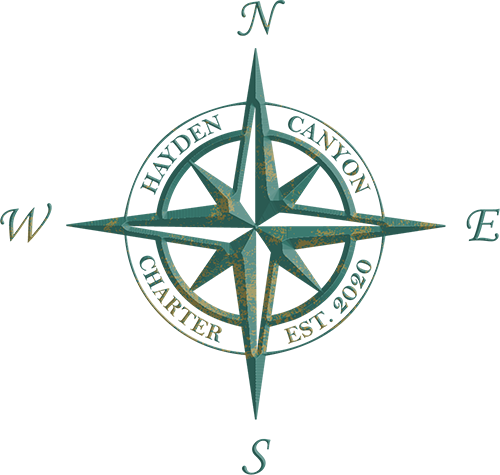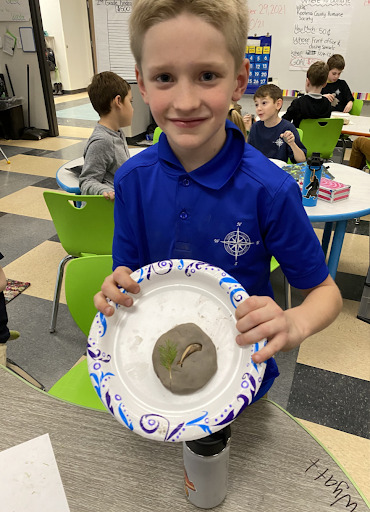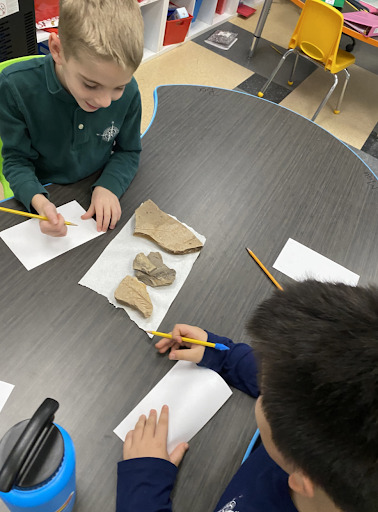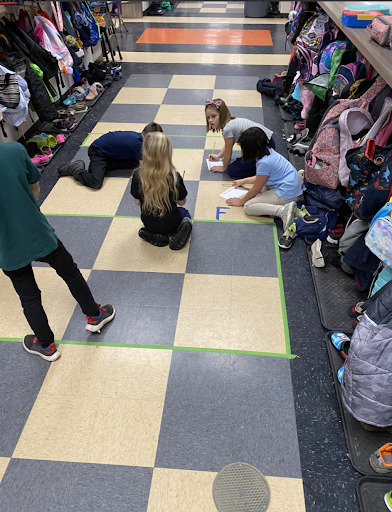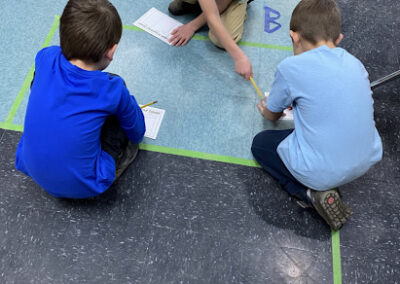2nd Grade
Expedition 1: Schools and Community
Students build their literacy and citizenship skills as they engage in a study of schools.
Guiding Questions & Big Ideas:
- What is school, and why are schools important?
- A school is a place designed for students to build knowledge and skills, foster character and relationships, and create high-quality work.
- Why is it hard for some children to go to school in their communities?
- Things like weather and location can make it difficult for children to go to school.
- How do communities solve these problems so their children can go to school?
- Communities think of solutions to make sure students have a place to go to school.
- How are schools around the world different? How are they similar?
- Schools around the world may be different or they may be similar, but they are all places designed for learning.
Expedition 2: Fossils Tell of Earth’s Changes
Students build their literacy and science skills as they engage in a study of fossils. Students begin the module by participating in a close read-aloud of Stone Girl, Bone Girl by Laurence Anholt to explore the Unit 1 guiding questions: “What do paleontologists do?” and “How do characters respond to major events?” Students learn about Mary Anning and her role as a fossil hunter as they engage with key literature standards. Students focus on how Mary Anning responds to major events and challenges, and the overall structure of narratives through structured retells.
Guiding Questions & Big Ideas:
- What do paleontologists do?
- Paleontologists are people who look for, unearth, and study fossils.
- How do characters respond to major events?
- Characters respond in different ways to major events and challenges in books.
- What can we learn from studying fossils?
- Fossils can help us understand what plants and animals lived long ago and how the earth has changed.
- How do readers learn more about a topic from informational texts?
- Readers use different strategies to learn about a topic from informational text.
- How do authors write compelling narratives?
- Writers use various writing techniques to tell compelling stories.
Math Modules:
- Module 1: Number Sense-Understanding Base Ten
- Unit 1: Building Number Sense Through1000
- Unit 2: Comparing Three Digit Numbers
- Module 2: Investigations in Measurement
- Unit 1: Application of Time
- Unit 2: Length and Measurement
- Unit 3: Applications of Length
- Module 3: Addition and Subtraction
- Unit 1: Applications of Addition and Subtraction
- Unit 2: Generalizing Addition and Subtraction
- Unit 3: Fluently Apply Strategies for Addition and Subtraction
- Module 4: Geometric Exploration with Shapes
- Unit 1: Shapes and Attributes
- Unit 2: Fractional Understanding
- Unit 3: Early Multiplication
- Module 5: Applications in Mathematics
- Unit 1: Specific Review and Applications of Addition and Subtraction
Expedition 3: The Secret World of Pollination
Students build their research skills and science knowledge through a study of the secret world of plants and pollinators.
Guiding Questions & Big Ideas:
- How do plants grow and survive?
- Plants need light and water to grow.
- How do pollinators help plants grow and survive?
- Plants need pollinators because they help with the pollination process that enables new plants to grow.
- How do we get the fruits, flowers, and vegetables that we enjoy?
- Pollinators help plants produce the fruits, flowers, and vegetables we enjoy through the process of pollination.
- How do we become researchers and share our learning?
- Scientists use models to explain an idea or describe relationships.
